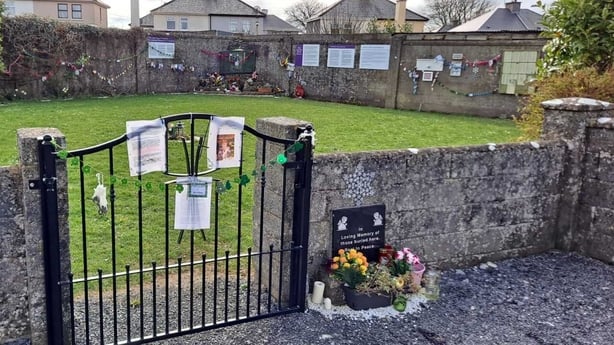The Government has approved the Mother and Baby Institutions Payment Bill for those who were resident in mother-and-baby institutions.
The bill has been changed slightly to introduce what the Department of Children has described as "more refined payment bands".
Minister for Children Roderic O'Gorman said the changes "will smooth and narrow the gap between payment amounts for applicants, and increase fairness and transparency".
The bill now provides for "periods of temporary absence" of up to 180 days to be included when calculating the total duration of a person's time in a relevant institution and their corresponding financial payment.
The department said many mothers and children spent time outside the institution, for example as a result of a hospital stay relating to pregnancy, childbirth, illness or infectious disease.
It was considered important that a person’s period of residence (and associated payment) should not be reduced because of hospitalisation, which may have been caused by "harsh institutional conditions", according to the department.
Applicants will qualify solely based on proof of residency, without a need to bring forward any evidence of abuse nor any medical evidence. In certain limited circumstances, sworn affidavits may be required.
Survivors and former residents now living overseas will qualify for a payment on the same terms as individuals living in Ireland.
They will have the choice to receive an enhanced medical card or a once-off payment of €3,000 in lieu of the card as a contribution towards their individual health needs.
This legislation will facilitate the establishment of an independent Executive Office, situated within the department, to administer the scheme.
The department said 34,000 survivors will be eligible for financial payments and 19,000 will be eligible for an enhanced medical card under the scheme, at an estimated cost of €800m.
The scheme will open for applications in 2023 following the enactment of the legislation.

When the Minister for Children announced the scheme in November last year, his intention was that it would open for applications in 2022.
However, it was confirmed today that the scheme will now open for applications in 2023 following the enactment of the legislation.
All mothers who spent time in a home will be eligible for a payment, with the amount increasing based on their length of stay.
All children who spent six months or more in an institution will be eligible for payment based on their length of stay.
There will also be an additional, work-related payment for women who were resident in certain institutions for more than three months and who undertook what might be termed commercial work.
Speaking to RTÉ's News at One programme, Minister Roderic O'Gorman said priority would be given to older people to ensure that they receive payment as soon as possible.
He said: "I think it will probably be a matter of months in terms of the processing times. Obviously there's a significant number of people who will be seeking these payments.
"We will look to prioritise people who are elderly people, who are particularly vulnerable, in terms of making sure that they can get the benefit of both the enhanced medical card and their payment as soon as possible."
Minister O'Gorman also said he hoped that the legislation would go before the Dáil before the end of this month.
"I look forward to getting it passed rapidly through the houses and I would hope the scheme will be available for former residents to make claims early in the new year," he said.
Work is under way to set up a system to administer the payments.
He said the legislation allowed for use of the database from the the Mother and Baby Home Commission to establish if people were in these institutions.
"So unlike in previous schemes where there was maybe an adversarial approach, once we're able to demonstrate someone was in an institution for the period of time, they will be able to receive the payment and if they were there for more than six months, receive the access to the enhanced medical card as well," the minister said.
On the qualifying criteria around people being six months in a home to be eligible, he said the criteria "remains in there and it's reflective of the fact that the scheme we're designing is based upon residency in one of the institutions".
The minister said it was "based on the fact that someone who was in an institution for a period of time would have had longer exposure to the harsh conditions in the institution, the mistreatment, the abuses and the stigma from being within the institution".
A spokesperson for the Association of Mixed Race Irish, many of whom spent between 16 and 18 years in institutions, have called for clarity on what the minister means by "institutions".
Conrad Bryan said that if the scheme covers their prolonged period in institutions, that is a major and significant improvement.
However, he said if it does not, they will reject any apology that has been given by Government as genuine and sincere.
Almost three weeks ago, UN human rights experts expressed concern over the lack of adequate redress for systemic racism and racial discrimination in Irish childcare institutions between the 1940's and 1990s.
The UN Working Group of Experts on People of African Descent and other special rapporteurs, who examined evidence and information about racism in the homes, welcomed the Government’s plan.
However, it called for further action to provide those who were subjected to differential treatment in childcare institutions with effective remedies.







